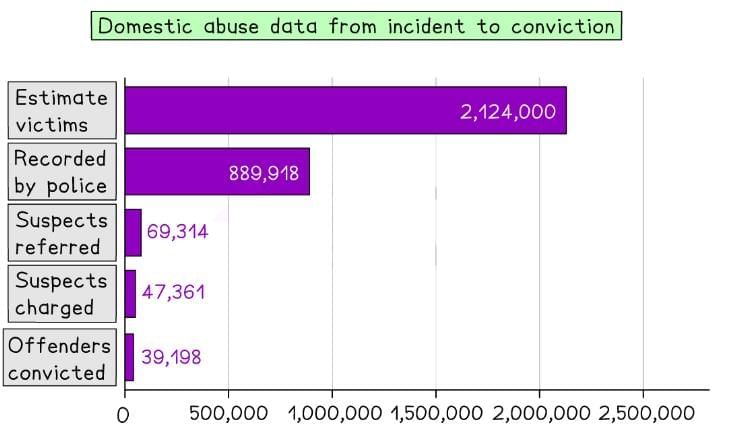Year 11 Exam > Year 11 Notes > Sociology for GCSE/IGCSE > Feminist Perspective of the Conventional Family
Feminist Perspective of the Conventional Family | Sociology for GCSE/IGCSE - Year 11 PDF Download
Key Thinker: Ann Oakley (1982) on the Conventional Family
- Ann Oakley, a feminist sociologist, analyzed existing sociological studies on the family, using secondary data to critically examine the conventional nuclear family, supported by relevant official statistics.
- She defined the nuclear family as a traditional structure that upholds patriarchal relationships.
- In this model, women are expected to perform unpaid domestic work at home, while men are expected to engage in paid employment outside the home.
- The man's economic dominance stems from his income, creating gender inequality, particularly when women, especially mothers of young children, are financially dependent as stay-at-home mothers.
- Even when women work, they typically occupy part-time, low-paid jobs, with their earnings often used for household expenses.
- Oakley argued that, despite being outdated, the conventional nuclear family remains idealized, though it is no longer the dominant family structure, particularly among middle-class individuals exploring alternative lifestyles.
- There is a rise in dual-worker and lone-parent families, and some people are choosing to live without forming families.
- This shift may occur because the conventional family can be a source of stress, with mothers at risk of depression and men facing health issues due to the pressure of being the primary provider.
Power and Decision-Making in Families
- Sociologists study the distribution of power in conjugal relationships. Willmott and Young (1973) observed a trend toward shared decision-making, including financial decisions, in symmetrical families.
- However, feminists Delphy and Leonard (1992) argue that family life is inherently hierarchical and patriarchal, rooted in male dominance and female subordination.
- Feminist sociologist Jan Pahl (1989) conducted interviews with 102 married couples with dependent children and found that men typically hold more power, dominating decision-making.
- Although some couples share decisions about household spending, in many marriages, husbands control the finances, sometimes leaving women and children in poverty despite the man’s adequate income.
Power and Domestic Violence Within Families
- Domestic violence (DV) represents a form of power and control within families, encompassing violence between partners, abuse of older family members, sibling violence, and physical, psychological, or sexual abuse of children.
- Victim surveys, such as the Crime Survey for England and Wales (CSEW), measure the prevalence of DV and reveal that it is often underreported to the police. Reasons for this include men’s reluctance to report abuse by female partners, victims’ preference for handling issues privately, fear of repercussions, or belief that the police cannot intervene effectively.
- This underreporting creates a “dark figure” of crime, meaning victim surveys may not fully capture the extent of DV.
- Feminists critique the functionalist perspective that portrays families as safe havens, arguing that the apparent increase in domestic violence highlights how families can be sites of harm rather than well-being for their members.
 Domestic abuse data from the CSEW year ending March 2023 (Office for National Statistics, 2023)
Domestic abuse data from the CSEW year ending March 2023 (Office for National Statistics, 2023)
The document Feminist Perspective of the Conventional Family | Sociology for GCSE/IGCSE - Year 11 is a part of the Year 11 Course Sociology for GCSE/IGCSE.
All you need of Year 11 at this link: Year 11
|
131 docs|2 tests
|
FAQs on Feminist Perspective of the Conventional Family - Sociology for GCSE/IGCSE - Year 11
| 1. What is the feminist perspective on the conventional family structure? |  |
Ans. The feminist perspective views the conventional family structure as a social institution that often perpetuates gender inequalities. It critiques traditional roles, where women are primarily seen as caregivers and homemakers, while men are viewed as breadwinners. Feminists argue that these roles limit women's opportunities and reinforce patriarchal values, advocating for a more equitable distribution of responsibilities and recognition of diverse family forms.
| 2. How has the concept of family evolved from a feminist viewpoint? |  |
Ans. From a feminist viewpoint, the concept of family has evolved significantly over time. Historically, families were largely patriarchal, with rigid gender roles. However, feminist movements have highlighted the importance of recognizing various family structures, such as single-parent families, same-sex families, and cohabiting couples. This evolution reflects changing societal norms and an increasing acceptance of diverse family dynamics that challenge traditional definitions.
| 3. What role do feminists believe education plays in changing family dynamics? |  |
Ans. Feminists believe that education is crucial for changing family dynamics as it empowers individuals, particularly women, to challenge traditional roles and pursue opportunities outside the home. Education promotes awareness of gender equality and equips individuals with the knowledge and skills to advocate for equitable relationships within families. By fostering critical thinking, education can help dismantle stereotypes and encourage shared responsibilities in family life.
| 4. How do feminist theories address issues such as domestic violence within the family? |  |
Ans. Feminist theories address domestic violence by highlighting how power imbalances within conventional family structures contribute to abuse. They argue that societal norms often condone violence against women, framing it as a private issue rather than a public concern. Feminists advocate for legal reforms, support systems, and public awareness campaigns to combat domestic violence and support survivors, emphasizing the need for societal change to protect individuals within families.
| 5. In what ways do feminist perspectives challenge traditional views on motherhood? |  |
Ans. Feminist perspectives challenge traditional views on motherhood by advocating for the recognition of diverse maternal experiences and rejecting the notion that motherhood is a woman's sole purpose. They argue that society often idealizes the self-sacrificing mother, which can lead to unrealistic expectations and guilt. Feminists promote the idea that motherhood can coexist with personal aspirations and that shared parenting responsibilities can benefit both parents and children, thereby redefining what it means to be a mother.
Related Searches















